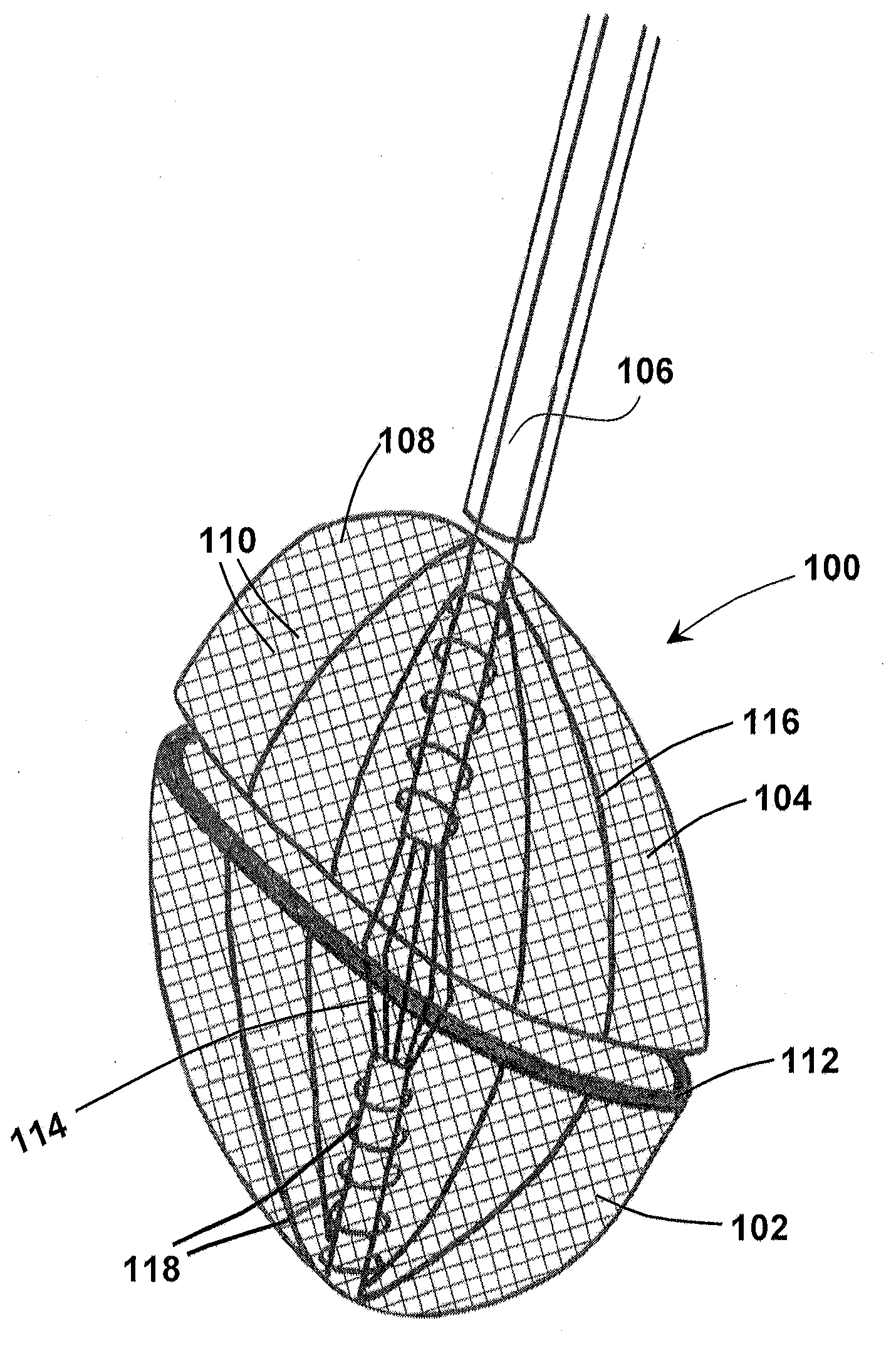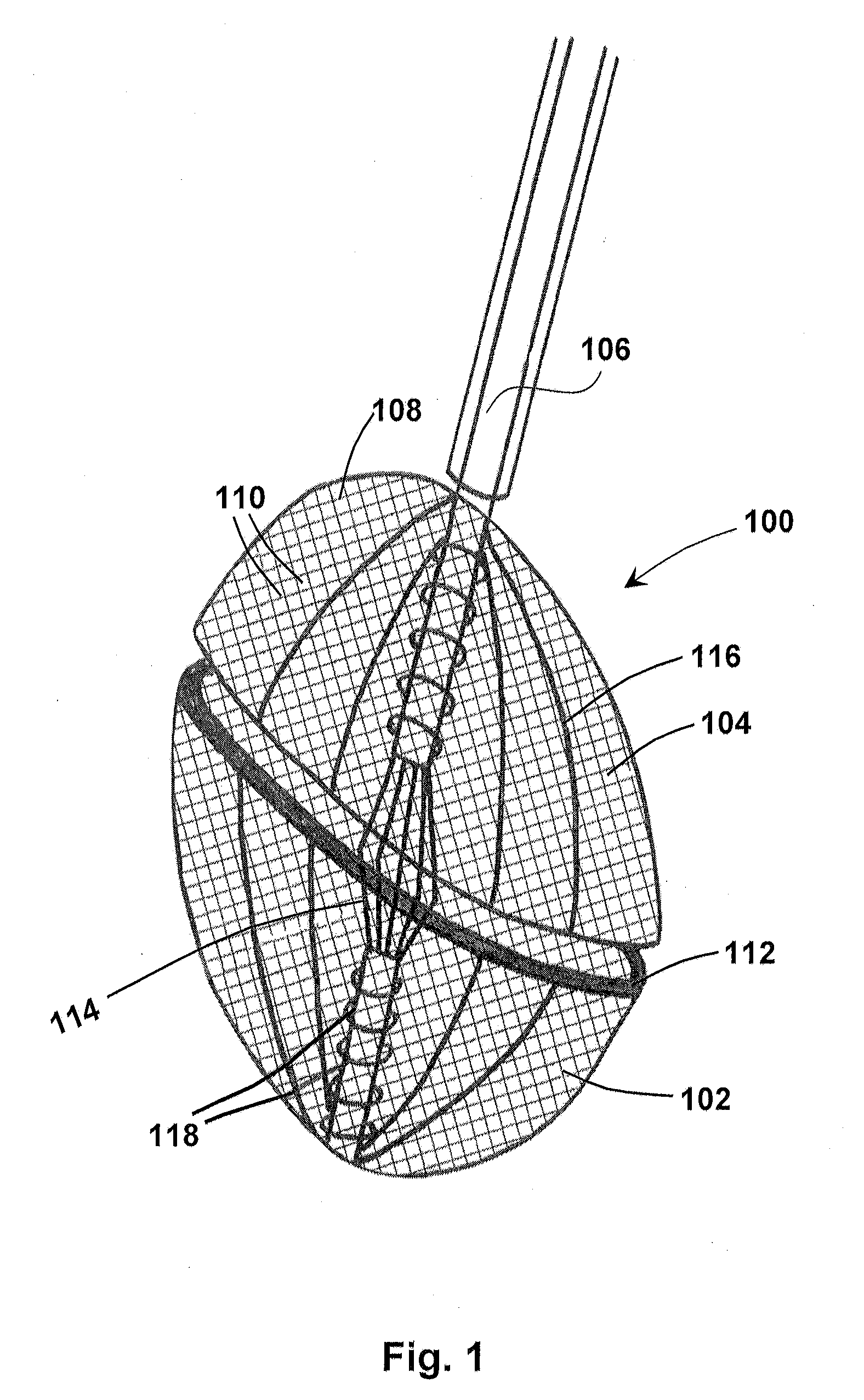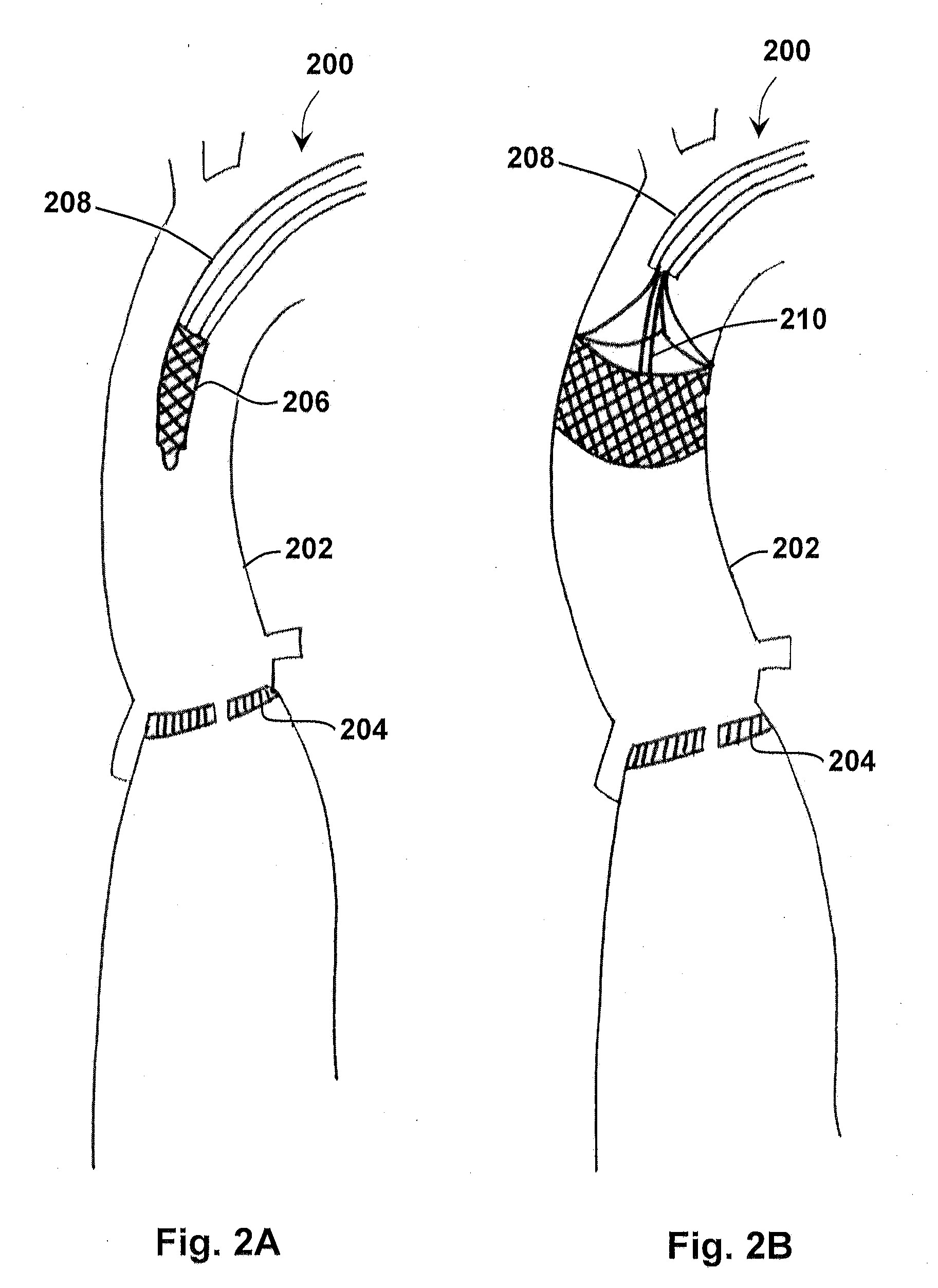Methods for removing a valve from a vessel
a valve and valve body technology, applied in the field of tissue removal, can solve the problems of considerable para-valvular leak regurgitation and early mortality, limited durability of bav, and difficulty in insertion of devices, etc., and achieve the effects of increasing temperature, increasing temperature, and increasing temperatur
- Summary
- Abstract
- Description
- Claims
- Application Information
AI Technical Summary
Benefits of technology
Problems solved by technology
Method used
Image
Examples
Embodiment Construction
[0043]For the purposes of promoting an understanding of the principles of the present disclosure, reference will now be made to the embodiments illustrated in the drawings, and specific language will be used to describe the same. It will nevertheless be understood that no limitation of the scope of this disclosure is thereby intended.
[0044]The disclosure of the present application relates generally to tissue removal, and more particularly to devices, systems, and methods for percutaneous and mini-invasive valve removal. In at least one embodiment, an umbrella device comprises two opposing umbrellas, a cauterizing mechanism, and a drill, wherein the umbrella device is operable to percutaneously engage and remove a valve.
[0045]An exemplary embodiment of an umbrella device according to the present disclosure is shown in FIG. 1. As shown in FIG. 1, umbrella device 100 comprises a first umbrella 102 and a second umbrella 104 coupled to shaft catheter 106. As shown in the exemplary embodi...
PUM
 Login to View More
Login to View More Abstract
Description
Claims
Application Information
 Login to View More
Login to View More - R&D
- Intellectual Property
- Life Sciences
- Materials
- Tech Scout
- Unparalleled Data Quality
- Higher Quality Content
- 60% Fewer Hallucinations
Browse by: Latest US Patents, China's latest patents, Technical Efficacy Thesaurus, Application Domain, Technology Topic, Popular Technical Reports.
© 2025 PatSnap. All rights reserved.Legal|Privacy policy|Modern Slavery Act Transparency Statement|Sitemap|About US| Contact US: help@patsnap.com



